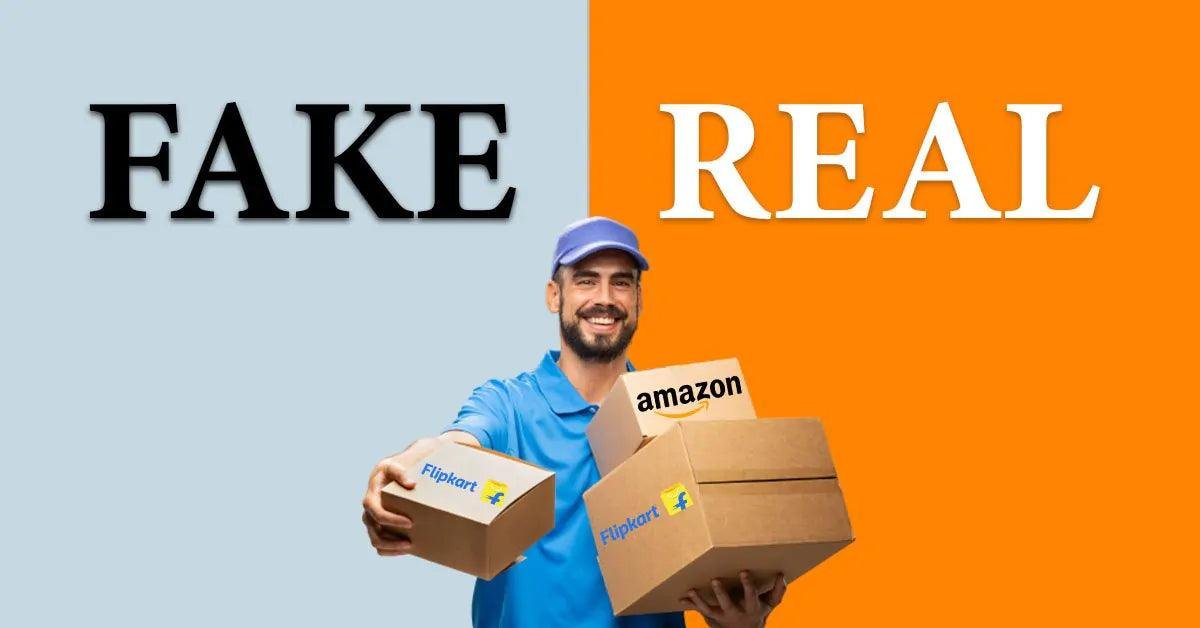MUMBAI – The rapid rise of online shopping in India has brought convenience to millions, but a shocking revelation has exposed a dark side of e-commerce giants Amazon and Flipkart.
A recent investigation has unveiled that a staggering 99% of products on these platforms are counterfeit, raising serious concerns over consumer safety and regulatory enforcement.
Authorities have discovered that fraudulent sellers exploit legal loopholes to flood online marketplaces with fake goods, deceiving unsuspecting customers. From branded apparel and footwear to high-end electronics and accessories, counterfeit products are being sold in massive volumes.
The ease of listing items online without stringent verification checks has allowed these illicit operations to flourish.
Investigations conducted in cities like Delhi, Mumbai, and Bengaluru revealed a complex supply chain of fake goods. Warehouses stocked with duplicate products were found operating without proper licenses or approvals from regulatory bodies such as the Bureau of Indian Standards (BIS).
ALSO READ: Now Open: Pan-India Registration for Fraud Investigators!
A major raid by the Bureau of Indian Standards and law enforcement authorities in Delhi’s Kirari area led to the seizure of counterfeit goods worth Rs 70 lakh.
Among the items confiscated were fake branded shoes, apparel, and accessories that were being sold on Flipkart under the guise of genuine products.
Similarly, in another operation targeting a warehouse associated with Amazon sellers, authorities discovered duplicate items being mass-manufactured without proper certification. It is estimated that these fraudulent operations have been causing financial losses worth crores of rupees to genuine brands.

Investigators revealed that scammers take advantage of weak monitoring systems on e-commerce platforms. They list counterfeit products under genuine brand names and manipulate ratings and reviews to build credibility. Customers, unaware of the deception, end up purchasing low-quality, imitation goods at prices similar to original products.
Moreover, the lack of stringent quality checks during delivery and return processes has further enabled counterfeit sellers to thrive. Fraudsters use fake GST numbers and duplicate barcodes to make their products appear legitimate.
Experts warn that counterfeit goods not only result in financial losses for customers but can also pose health and safety risks. To safeguard against fake products, consumers are advised to:
Verify Seller Credentials – Always check if the seller is an authorized distributor of the brand.
Inspect Product Reviews – Be cautious of listings with generic, overly positive, or manipulated reviews.
Look for Official Brand Tags – Branded products usually have unique holograms, serial numbers, and authenticity certificates.
Prefer Trusted Sellers – Choose products labeled as “Fulfilled by Amazon” or “Flipkart Assured” for better quality assurance.
Report Counterfeit Products – If you receive a fake item, report it to the e-commerce platform and consumer protection authorities.
Empanelment for Speakers, Trainers, and Cyber Security Experts Opens at Future Crime Research Foundation
Industry experts emphasize the urgent need for stronger regulations and proactive monitoring by e-commerce platforms. Many believe that mandatory verification of sellers and stricter penalties for counterfeit sales can help curb the growing menace.
As authorities intensify their crackdown on counterfeit goods, consumers are urged to remain vigilant and make informed purchasing decisions. While online shopping offers convenience, the prevalence of counterfeit products highlights the importance of exercising caution and awareness in the digital marketplace.


